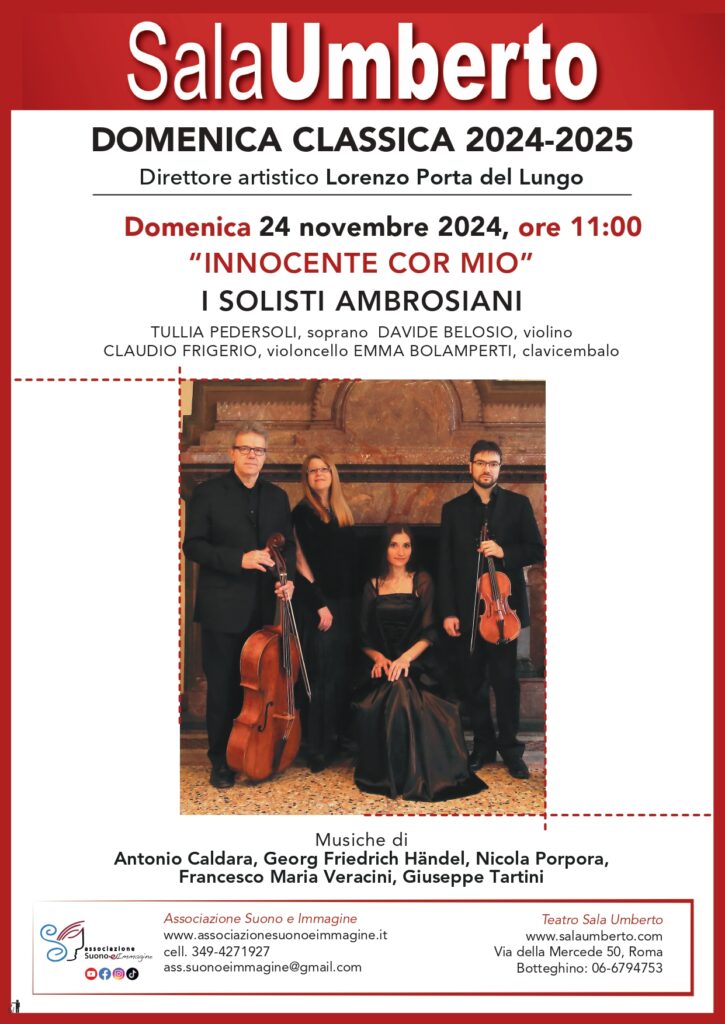
Love and death: a combination dear not only to the literature and music of the Romantic era, but known as far back as the Baroque era and, even earlier, in Roman history. These two elements, whose memory is lost in the mists of time, are at the center of the program presented by the quartet I Solisti Ambrosiani for the opening concert of the Domenica Classica Review.
The program, which alternates between instrumental and vocal pieces, focuses on late Baroque composers, all active until the first half of the 18th century.The vocal repertoire features some milestones for the cantata form: Caldara, Handel (who spent two years in Rome in his youth and perfected himself in this genre) and Porpora (active as a composer and singing master).
Program
Antonio Caldara (1670-1736)
Cantata Innocente cor mio, for soprano, violin and continuo
Innocente cor mio (Recitative)
Don’t find yourself and don’t joke (Air)
La vaga luce (Recitative) – Love Themes (Aria)
Georg Friedrich Händel (1685-1759)
Sonata in F major for violin and continuo Op.1 no. 12
Nicholas Porpora (1686-1768)
Already the night approaches (Aria), for soprano and continuo
Francis Mary Veracini (1690-1768)
Sonata in G minor for violin and continuo
Georg Friedrich Händel (1685-1759)
Cantata Agrippina condotta a morire, for soprano, violin and continuo
How, oh God, I long for death (Aria)
Yes, yes, long live Nero (Recitative)
If unhappy in the world I lived (Aria)
Behold, to death already I run (Final Recitative)
Giuseppe Tartini (1692-1770)
Adagio in G for violin and continuo


